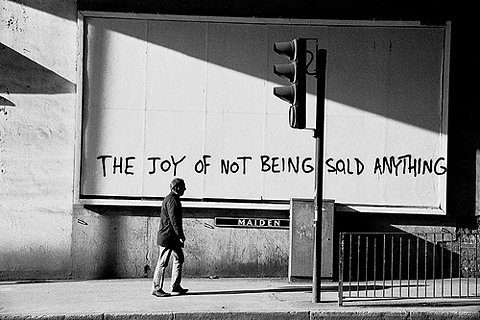Notes on a talk by Michael Stone at Centre of Gravity, July 3, 2013
There are many approaches to meditation. We’re using is called one-pointed attention. You take an object: candle, breath, mantra or sound, and it gives you an anchor, a place to return to. The closer you get to the breathe, the softer it gets, and this regulates the nervous system. Added side benefit. Once you have settled, you can open up awareness and allow whatever happens to enter arise, without turning it into stories. If you can.
Frog
An old pond (your whole life in this moment)
a frog jumps in
plop
This poem asks: how do we open the mind? To allow whatever is arising to come without clinging to it. How do we become awake to moment to moment awareness? Mind moments are like eye blinks. What you’re open to this moment you return to your original face. How often do we hold our faces in ways that freezes our past experiences, the ones we’re unable to let go of. Babies show all of their faces in half a minute, they allow whatever is happening to cross their face. The lesson of babies is: how to be yourself in this moment right now. Usually we pick some final moment and make a story out of it and decide that’s what is happening right now. This is how our stories help us lose touch with our actual, moment-to-moment experience.
Tolstoy
Leo Tolstoy told this story about a hungry man who hadn’t eaten for days. By a great stroke of fortune he received three loaves of bread and a pretzel. He ate the first loaf but was still hungry. He ate the second but was still hungry. He ate the third but remained hungry. Finally he ate the pretzel and was satisfied. He asked himself aloud: why didn’t I just eat the pretzel?
Conditions
When the Buddha spoke about his awakening he said that he awoke to conditioned arising. What is conditioned arising? Each moment is a composite, a connective tissue. We take in conditions via mind and body, and these condition our actions. If you change conditions you can change the outcome. It’s a very hopeful model. This is very different than the Abrahamic tradition, where there is something behind this moment, and what is behind this moment is eternity or God. The believer opens up to God. In the Buddha’s model, you open up to this moment. This means seeing how conditions are coming together to create this complex moment. This moment, right here, right now.
The Buddha is doing two things. He’s saying: rely on what you can verify. And he’s offering a critique of religion. Religion is the way we superimpose metaphysical concepts that get in the way of seeing our moment to moment existence. The labeling of God is part of conditioning. Every moment in the city is an interconnected experience. You’re not separate from that anymore. Each moment is connective tissue.
Buddha
“The Buddha compares a person who has not grasped the import of the four to ‘a tuft of cotton wool or kapok,’ which is blown hither and thither by the wind. Lacking direction and purpose, such a fickle person is prone “to look up at the face of another ascetic or Brahmin, thinking: ‘This worthy one is surely one who knows, who really sees!” Yet one who has understood the four is compared to “a stone column sixteen feet high, half of which is sunk in the ground and half of which stands above it.” For no matter how hard the winds blow, such a person does not ‘shake, quake or tremble’ and has no inclination to go seeking wisdom at the feet of every passing guru.” (S 56:39-40, 1862-4)
Buddha: “One who sees dependent origination sees the Dhamma; one who sees the Dhamma sees dependent origination.” (MN 28)
Provisional Chain of Dependent Co-arising
Not-Seing Clearly (aka ignorance) shapes intention (karma)
Intention shapes attention
Attending shapes how body and mind are mobilized
How body and mind are mobilized shapes sensing
Sensing shapes contacting (contact between sense organ and sense object)
Contacting shapes feeling (There are three feelings: I like, I don’t like, neutral. Yes, no, maybe)
Feeling shapes craving. (move toward or move away)
Craving shapes clinging
Clinging shapes becoming (clinging creates a sense of ‘me’) (as soon as there is clinging there is suffering. much grasping equals much suffering. little grasping equals little suffering)
Becoming shapes birth
Birth shapes aging and death (of our stories)
(Aging and death shape not-seeing)
Weekend
Greed is conditioned. When you hold something dear, greed arises. For the Buddha, everything begins with perception, not belief. We’re always trying to make what is conditioned into something permanent and ever lasting, especially in relationships. I remember going to the airport with my son, we had just spent the weekend in Montreal. “Wasn’t that a great weekend?” I asked him, only he was busy playing with his new toy and mostly ignoring me. I saw that he was here in this moment, while I was already turning experience into stories, framing the past. A weekend is never good or bad, how can you squeeze all those hours into a word? The weekend included everything, but we do this all the time, we summarize, and then we raise a flag and declare allegiance to our summaries.
Proliferation
Proliferation is called in Pali Papunca. It means conceptual proliferation, or thoughts that give birth to other thoughts. One thing after another. After contact between sense organ and sense object produces feeling (good, bad, indifferent), perhaps it’s a bad feeling, this is connected to a memory, and this memory has a thought attached, a story, a summary, related to that bad feeling, so the sense of “I don’t like this” can proliferate to become “I really don’t like this” to “This bad thing keeps happening to me” to “This bad thing is always happening to me.” The thought multiplies and expands. Proliferation is a defense against feeling what is happening right now. All of us crave intimacy but it’s a threat to the story we tell about ourselves. Relationships are the key to yoga, because relationships cut through the stories we tell about ourselves.
The Buddha argued for a positive psychology. Conditions are changing and therefore outcomes can change. Everything is malleable. We’re not victims of fate, we have a say in what’s being created.
Re-parent
My five month old son is learning to be alone. For him that means giggling, drooling, biting his lip, rolling over. The way we come back to ourselves, the way we can be with ourselves when we’re alone, is also a conditioned arising. We’ve internalized the way others have internalized us, the way others allowed us to be with ourselves, offered their loving proximity, conditions our anxiety and creativity. When we meditate all that conditioning comes back again. In this sense, meditation is a re-parenting, we learn how to tolerate strong emotions, we’re learning how to do what our parents couldn’t do and it happens at a level below language.



